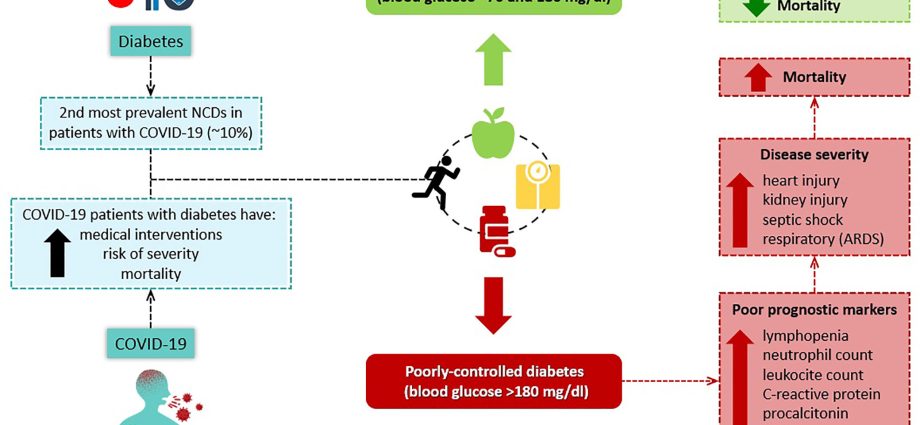COVID-19 may not only cause serious complications in type 2 diabetes, but also contribute to the development of diabetes in previously healthy people, reports an international team of scientists in the New England Journal of Medicine.
- Among patients who died from COVID-19, 20 to 30 percent. previously had diabetes. Diabetes mellitus is one of the most common so-called comorbidities
- Diabetes mellitus in a patient infected with the new coronavirus is associated with a greater risk of severe COVID-19 and death from it
- On the other hand, new cases of diabetes have been observed in patients with COVID-19. Scientists cannot explain this phenomenon yet
In order to better understand the relationship between COVID-19 and diabetes, an international group of leading diabetology researchers on the CoviDIAB project has established a global registry of patients who developed diabetes after developing COVID-19.
This includes help to better understand the scale of the phenomenon, describe the symptoms of developing diabetes in patients with COVID-19 and the most effective methods of its treatment and monitoring of patients’ condition. It will also help to answer the question of whether glucose metabolism disturbances pass over time after the infection is cured.
As the researchers in the New England Journal of Medicine recall, the observations so far indicate the existence of a two-way relationship between COVID-19 and diabetes. On the one hand, the presence of diabetes in a patient infected with the new coronavirus is associated with a higher risk of severe COVID-19 and death from it. Among patients who died from COVID-19, 20 to 30 percent. previously had diabetes. These patients also have atypical metabolic complications of diabetes mellitus, including life-threatening ketoacidosis and plasma hyperosmolarity. On the other hand, new cases of diabetes have been observed in patients with COVID-19.
It is not yet known exactly how the SARS-Cov-2 virus that causes COVID-19 affects the development of diabetes, the researchers emphasize. Previous studies have shown that the ACE2 protein, through which the virus enters cells, is present not only on lung cells, but also on other key organs and tissues involved in metabolic processes, such as the pancreas, liver, kidneys, small intestine, tissue fatty. Researchers suspect that by infecting these tissues, the virus causes complex, complex disorders of glucose metabolism, which may contribute not only to complications in people already suffering from diabetes, but also to the development of this disease in patients who have not yet had a diagnosis of diabetes.
“Since the exposure of humans to the new coronavirus to date has been short, the mechanism by which the virus may affect glucose metabolism is still unclear. We also do not know whether the acute symptoms of diabetes in these patients are type 1, type 2 or maybe a new form of diabetes “- commented the co-author of the information in” NEJM “prof. Francesco Rubino of King’s College London and one of the researchers behind the CoviDiab registry project.
Another diabetologist involved in the project, prof. Paul Zimmet of Monash University in Melbourne stresses that currently the incidence of diabetes caused by COVID-19 is unknown; It is also not known whether the diabetes will persist or resolve after the infection is cured. “By creating a global registry, we call on the international medical community to quickly share clinical observations that will help answer these questions” – concluded the expert.
Find out more:
- How many Poles have diabetes? It’s an epidemic
- Every 10 seconds someone dies because of it. The risk increases with age and weight
- Not only obesity. What puts us at risk of diabetes?










